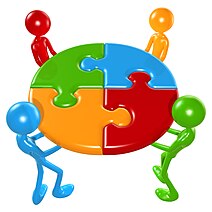Want to listen to an episode?
- You can download an app, subscribe to “Linking Our Libraries” and all episodes will appear on your phone – it’s so easy!
- Apps we like include Pocket Casts, iTunes, and Stitcher.
- Download any of these, search for “Linking Our Libraries” and hit Subscribe.
- If it is not readily available, just enter this RSS feed: http://libraries.blubrry.com/feed/podcast/.
- Or, you can stream an episode right now on your computer by going to our streaming page, by clicking here.
Whatever tool you use, we hope you enjoy it! Thanks for listening, and sharing ideas on libraries!
Want to talk with us about this topic? Do you, your staff, or your organization need training in this topic? Want to write a policy, or develop a program? We are here for you!
Click here to get started!
Check out our full information page here!
Introduction
Welcome back to Season Three of Linking Our Libraries! We are Central Minnesota Libraries Exchange, and we are here to share information with all types of libraries, archives, and other nonprofits working to build their skills. This season, we are working on building a toolbox of leadership skills and ideas. By the end of this season, you will have fifteen specific skills that will make you a stronger leader and manager in your organization.
This week we discuss Research and Writing. Joining us is Guest Host Rhonda Huisman, Dean of the Library at St. Cloud State University.
The Basics
Talking about research and writing is not typical for management development; but sharing your experience is an important part of being a good library leader. Remember that you are not “just” a manager in your Reference department, or of your hospital library, or working in your grade school; you are also part of a profession. That means you get some great benefits in being part of a large group; and you have some responsibilities back to that group. Carrying out research, and communicating the good and bad experiences you have in the profession, are ways to fulfill that responsibility.
This is a surprisingly tough sell for many library people. They worry they are not doing things that are important enough to share, or that they are not good writers, or that they just do not know where to start.
Fortunately, these problems are easily overcome. In our profession we have a lot of people who are active in publishing their work – in journals, in blogs, in newspapers, in podcasts, or other venues. You can find all sorts of resources on good writing and on publishing to help you get started. And it does not matter at all how big or how small they are – every single library we have ever visited is doing something interesting and unique. Never worry that you have nothing of value to say.
In libraries and archives, research is all about finding ways we can help our organizations to function better, and do more to reach out to our communities. Just like everything else we do, it is about solving problems and connecting people with the right information. As a manager, you want to be actively involved in solving problems and finding answers to different issues that will arise in your organization. Understanding some basics on research will let you do this.
Continue reading Episode 314: Research and Writing




